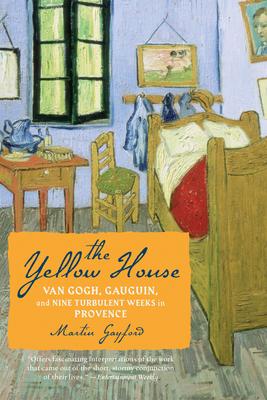From October to December of 1888, Paul Gauguin shared a yellow house in the south of France with Vincent van Gogh. They were the odd couple of the art world -- one calm, the other volatile -- and the denouement of their living arrangement was explosive. Making use of new evidence and Van Gogh's voluminous correspondence, Martin Gayford describes not only how these two hallowed artists painted and exchanged ideas, but also the texture of their everyday lives. Gayford also makes a persuasive analysis of Van Gogh's mental illness -- the probable bipolar affliction that led him to commit suicide at the age of thirty-seven. The Yellow House is a singular biographical work, as dramatic and vibrant as the work of these brilliant artists.

From October to December of 1888, Paul Gauguin shared a yellow house in the south of France with Vincent van Gogh. They were the odd couple of the art world -- one calm, the other volatile -- and the denouement of their living arrangement was explosive. Making use of new evidence and Van Gogh's voluminous correspondence, Martin Gayford describes not only how these two hallowed artists painted and exchanged ideas, but also the texture of their everyday lives. Gayford also makes a persuasive analysis of Van Gogh's mental illness -- the probable bipolar affliction that led him to commit suicide at the age of thirty-seven. The Yellow House is a singular biographical work, as dramatic and vibrant as the work of these brilliant artists.
Paperback
$19.99